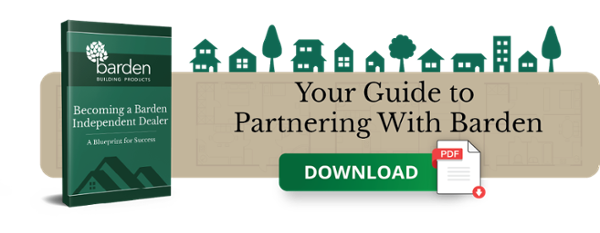
Every client is different, and so are their ideal homes.
Some are looking for a space to grow into, while others want to downsize to a smaller home that still has some room for guests. And there are those other wants and needs -- such as a home office or elaborate patio -- that matter most.
Aligning a client’s vision for their next home with what’s possible is an involved, yet rewarding process. There’s nothing more satisfying than handing a client the keys to their new residence.
Pursuing a custom home building career or becoming a realtor are two of the routes you can take to help clients realize the home of their dreams.
A Career in Custom Home Building Vs. Realty
While a custom home building career and home realty are ultimately about helping clients get to their next home, there are distinct differences about how each makes that happen.
What Does A Career in Custom Home Building Look Like?
Because building a home is a big job with many moving parts, builders have a much more involved relationship with a prospective homeowner.
There are two ways most enter this line of work -- as a dealer/project manager or a builder. In both career paths, you’ll help future homeowners identify exactly what they want out of their next home and distill that vision into an actionable floor plan.
In addition to selling a floor plan, custom home dealers oversee a custom home project, keeping it on track as it goes from the drawing board to reality -- even if the future homeowner is self-constructing the home. Custom home consultants lend their expertise and experience to:
- Finding a building site
- Hiring contractors and subcontractors
- Evaluating budget and financing options
- Filing required paperwork and permits
- Completing site inspections during construction
- Fielding client concerns
True custom home builders take things a step further. In addition to all of the duties of a home dealer, a custom home builder handles the majority of a home’s construction. They may hire subcontractors to complete some specialty jobs, such as electrical work or installing a foundation.
What Are the Duties of a Realtor?
A realtor’s work is rooted in a housing market’s existing stock properties. Filling a more transactional role, realtors work with both home buyers and property owners to sell homes. They’re often the intermediary between the two, as well.
In the buying side of real estate, realtors:
- Help clients find potential homes
- Explain all elements of the home-buying process
- Arrange tours
- Make offers
- Negotiate sales
In selling homes, real estate agents:
- Prepare listings
- Market properties
- Organize showings and open houses
- Gather pertinent paperwork, e.g. home warranties and appraisals
- Evaluate and present offers to the seller
Starting a career as a realtor isn’t simply getting a few “For Sale” signs with your name on them and starting to sell homes. Real estate agents are required to complete various courses and obtain a license. Every state has different requirements for realtors to begin selling homes -- becoming a realtor in New York is different than becoming a realtor in Michigan.
Why Custom Home Dealers Need Realtor Skills
The most successful custom home dealers and builders have mastered their trade. However, the skillset isn’t strictly limited to custom home design and building. They also have a good real estate sense.
Why?
With an acumen for realty, a custom home dealer understands all elements of moving into a new home and the market, including:
- Making a sale: All custom home projects involve selling a home and all its features to a future homeowner -- even if it’s not built yet.
- Proper site selection: Where a client’s home is located can make all the difference in how much they’ll love where they live. Building a new home on a busy street or remote area is no different than purchasing an existing home in a similar location.
Market conditions: The state of the economy, interest rates, and how much movement there is in home sales all impact custom home building projects. Local market conditions can drive up prices or make building a home that much more attractive. - Home financing: Unless a client comes to the table with all the money they’ll need for their next home, they’ll probably take out a loan. While there are many options for funding new home construction, most end with a mortgage or long-term loan.
While buying and selling homes is very different from building them, the skills needed in real estate are transferable -- and beneficial -- for a custom home building career.
A Custom Home Building Career: Getting Clients the Exact Home They’ll Love
A market’s housing stock has its limitations. Sometimes the market is inundated with homes for sale, while other times it’s not. What’s more, there’s very rarely an existing home that meets all of a prospective homeowner’s expectations.
Custom home builders eliminate the need for a client to make trade-offs with the next home or potentially spend months searching for a house. If there’s something a client simply must have for their new house, a custom home builder helps make that happen regardless of the real estate market.
Hit the Ground Running With Your Custom Home Building Career
Click the button below to find out how you can become a Barden Independent Dealer.



